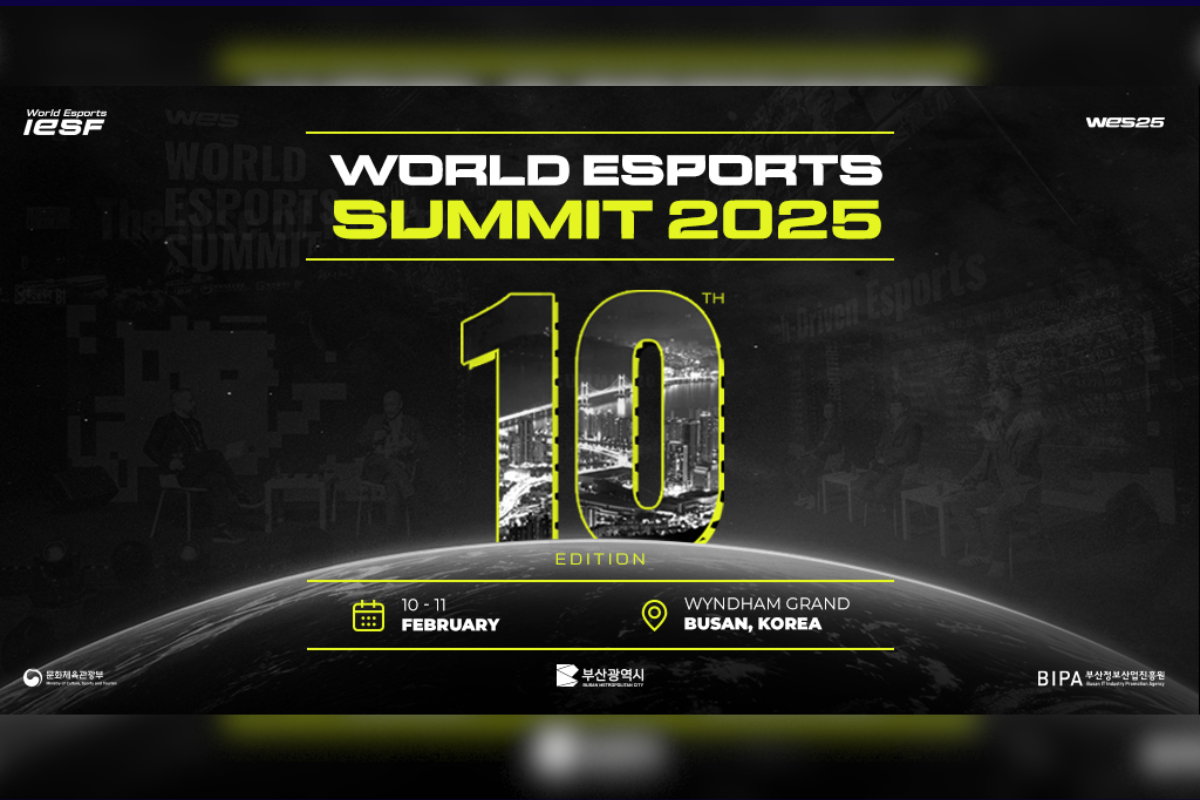Asia
PAGCOR turns over P571 million grants to eight LGUs

The Philippine Amusement and Gaming Corporation (PAGCOR) turned over a total of P571.58 million to the provinces of Pampanga, Bataan, Zambales, Nueva Ecija, Aurora, Ilocos Norte, Masbate and Leyte on June 28, 2022.
PAGCOR Chairman and CEO Andrea D. Domingo said the financial grants will be used for the upgrading of hospital equipment and augmentation of the local governments’ medical facilities.
The province of Pampanga received P190.5 million. Of this amount, P100 million was allotted for the completion of Pampanga Provincial Hospital – Clark Annex as instructed by former President Rodrigo Duterte, while the remaining P90.5 million will be used for the procurement of 40 units of dialysis machines and one unit of CT scan machine.
Pampanga’s Provincial Administrator Atty. Charlie Chua said the hospital will cater to around 125,000 employees in Clark and other patients from nearby provinces. “Yung dialysis machines at CT scan naman ay gagamitin sa dalawang dialysis centers sa Districts 4 at 2 na itatayo sa Pampanga,” he added.
Meantime, the province of Bataan received P102.06 million which will be used for the procurement of various medical/hospital equipment for the COVID-19 facility and Mariveles District Hospital (MDH)-Imaging and Diagnostic Center of the province.
MDH Chief Doctor Hector T. Santos said the donation will enable them to cater to more patients after serving as a COVID facility for two years.
“Early this year lang kami nakapag-resume ng operations ng lahat ng services. Kaya napakalaking timing ng grant ng PAGCOR. Una, magagamit ito sa pagpapa-gawa ng temporary ICU para kung magka-surge ulit ng COVID, prepared tayo. Second, i-a-upgrade natin ang ospital at makakabili na tayo ng diagnostic modalities, like CT Scan, Ultrasound, mga Digital X-Ray. Sabi nga ni Gov. Alberto Garcia, kung napakalaki ng province at development, ang healthcare hindi dapat napapag-iwanan,” Santos shared.
The provinces of Zambales and Nueva Ecija, meanwhile, received P100 million each.
According to Zambales Provincial Legal Officer Atty. Jo Ellaine Collado, the financial grant will be utilized to upgrade their provincial hospital. “Currently, our hospital is under level 2. But with the P100 million-donation from PAGCOR, we will get to level 3 to increase our bed capacity from 150 beds to 300 to 500, hopefully” she said.
Nueva Ecija Provincial Administrator Atty. Alejandro Abesamis said they will use the donation for the procurement of one unit of MRI machine and three units of ambulance.
Other provinces that received financial grants were Aurora (P54 million for the procurement of one unit of 64-slice CT scan equipment, anesthesia machine, and construction of a building to house the facilities) and Ilocos Norte (P15.05 million for the procurement of various hospital equipment).
Also, the municipality of Baybay in Leyte received P3.97 million for the purchase of various medical equipment intended for Immaculate Conception Hospital. The municipal government of Balud, Masbate also received P6 million for the construction of one unit school building, procurement of books, journals latest editions, furniture and fixtures, and laboratory equipment.
The recipients expressed their gratitude to PAGCOR for the agency’s generosity and timely support.
In the past six years (2016 – 2022), PAGCOR has infused more than one billion to several health-related programs of the national government and several public medical institutions, on top of its mandated contributions.
Powered by WPeMatico
Asia
Books on Wheels: DigiPlus Foundation Brings Mobile Library to Boost Literacy Among Aurora’s Young Learners

DigiPlus Foundation continues to champion inclusive learning by empowering young learners in Aurora Province through a meaningful partnership with youth-led volunteer group Sikat Aurora.
Following six months of sustained support for Sikat Aurora’s Abot Ko ang Libro storytelling initiative, an activity that brings reading sessions and learning spaces closer to children in local communities, DigiPlus Foundation and GameZone surprised the group with a new mobile library designed to support their mission beyond a single location. The mobile library will allow Sikat Aurora volunteers to roam across Aurora Province, reaching more children with books, learning materials, and storytelling activities.
The donation strengthens Sikat Aurora’s efforts to uplift nonformal education as a vital complement to classroom learning, especially for children with limited access to books and educational resources. By taking learning on the road, the mobile library transforms storytelling sessions into a scalable, sustainable program that can reach far-flung communities across the province.
RJ Belen, Founder of Sikat Aurora, said: “We are truly grateful for the trust and support of DigiPlus Foundation. This mobile library will help us reach more young learners in Aurora and strengthen our mission of nurturing a love for reading. Through nonformal education, we help support what children learn in school and create spaces where learning feels accessible, enjoyable, and empowering.”
“This will allow us to bring learning to children who may not always have access to educational materials, helping them build confidence and curiosity as they grow.”
Neil Orillaneda, Program Manager for Technology Education of DigiPlus Foundation, said: “Our goal is simple: no learner left behind. By supporting initiatives like Sikat Aurora’s mobile library, we help bridge learning gaps and ensure that children, regardless of location or circumstance, have access to educational resources that support their growth.”
The mobile library donation reflects DigiPlus Foundation’s belief that learning happens not only inside classrooms, but also within communities through shared stories, accessible resources, and partnerships that place children at the center of development.
The mobile library donation is part of a Php 1-million contribution from GameZone during the International Series Philippines (ISP), channeled through DigiPlus Foundation to support a range of community initiatives nationwide. Beyond education, the donation also funds livelihood support for local weavers, health program assistance for the LGBTQ+ community, aid for persons with disabilities in Cebu, and flood rescue equipment for Manila, reflecting a holistic approach to community development that addresses education, health, inclusion, and disaster preparedness.
The post Books on Wheels: DigiPlus Foundation Brings Mobile Library to Boost Literacy Among Aurora’s Young Learners appeared first on Americas iGaming & Sports Betting News.
Asia
World Esports Summit Celebrates Its 10th Edition in Busan

The World Esports Summit returns to Busan, South Korea, for its 10th edition, taking place on 10–11 February 2025.
Hosted at the Wyndham Grand Busan, the Summit will bring together 40+ speakers from the international esports ecosystem, including representatives from federations, publishers, global brands, sports organizations, technology companies, and public institutions.
Over the past decade, the World Esports Summit has provided a platform for dialogue and cooperation among stakeholders shaping the world of esports. The 2025 edition will continue this role, offering space for discussion on current developments, industry challenges, and future directions.
The Summit will feature contributions from a wide range of organizations, including Alibaba, FIBA, FIFAe, Tencent, Moonton, NetEase, FIA, Sportradar, EFG, Good Game, Telekom, among others.
Across two days, participants will take part in keynote sessions and panel discussions addressing topics such as esports governance, international collaboration, industry development, integrity, and the continued convergence of esports and traditional sports.
Further information on the program, speakers, and registration is available on the official World Esports Summit website.
The post World Esports Summit Celebrates Its 10th Edition in Busan appeared first on Eastern European Gaming | Global iGaming & Tech Intelligence Hub.
Asia
Insurgence Gaming Company Expands Grassroots Vision with MOBA Legends 5v5 Discord Play-Ins

Following the launch of its inaugural women-focused VALORANT tournament La Imperia, the Insurgence Gaming Company has announced its second competitive initiative, MOBA Legends 5v5 Discord Play-Ins, a series of open community tournaments created to make organised competition more accessible to emerging players.
While La Imperia introduced a visibility-led invitational format, the MOBA Legends 5v5 Discord Play-Ins take a different approach. The series is built around open participation and will be hosted entirely online, with all tournament operations managed through Discord. This allows teams from across India to compete in a structured setting without the restrictions often associated with invite-only events.
The Play-Ins are designed as a starting point for players and teams who want to experience organised competition. Matches will be played in a 5v5 MOBA Draft Pick format, with scheduling, match reporting, and communication handled through dedicated Discord channels.
The announcement continues Insurgence Gaming Company’s early focus on grassroots esports. The company was created to address gaps in India’s competitive ecosystem, particularly at the amateur and semi-professional level where consistent tournament opportunities are still limited.
Speaking on the launch, Jasper Shabin, Founder of the Insurgence Gaming Company, said: “With La Imperia, we focused on visibility. With the Discord Play-Ins, the focus shifts to access. Competitive players need regular places to play, improve, and test themselves, not just one-off tournaments. MOBA Legends 5v5 is one of the most accessible competitive titles on mobile, which makes it a strong fit for an open, community-driven format.”
Beyond competition, the Discord Play-Ins are also intended to build a sense of continuity. Players will have access to channels dedicated to match coordination, tournament updates, and post-game discussion, helping teams stay connected beyond a single tournament run.
With the MOBA Legends 5v5 Discord Play-Ins, the Insurgence Gaming Company continues to shape its identity around community-first formats, pairing visibility-led initiatives like La Imperia with open competitive pathways that support long-term grassroots growth in Indian esports.
The post Insurgence Gaming Company Expands Grassroots Vision with MOBA Legends 5v5 Discord Play-Ins appeared first on Eastern European Gaming | Global iGaming & Tech Intelligence Hub.
-

 ACMA6 days ago
ACMA6 days agoACMA Blocks More Illegal Online Gambling Websites
-

 Aurimas Šilys6 days ago
Aurimas Šilys6 days agoREEVO Partners with Betsson Lithuania
-

 CEO of GGBET UA Serhii Mishchenko5 days ago
CEO of GGBET UA Serhii Mishchenko5 days agoGGBET UA kicks off the “Keep it GG” promotional campaign
-

 Canada5 days ago
Canada5 days agoRivalry Corp. Announces Significant Reduction in Operations and Evaluation of Strategic Alternatives
-

 Latest News4 days ago
Latest News4 days agoTRUEiGTECH Unveils Enterprise-Grade Prediction Market Platform for Operators
-

 Central Europe5 days ago
Central Europe5 days agoNOVOMATIC Once Again Recognised as an “Austrian Leading Company”
-

 Firecracker Frenzy™ Money Toad™5 days ago
Firecracker Frenzy™ Money Toad™5 days agoAncient fortune explodes to life in Greentube’s Firecracker Frenzy™: Money Toad™
-

 Acquisitions/Merger5 days ago
Acquisitions/Merger5 days agoBoonuspart Acquires Kasiino-boonus to Strengthen its Position in the Estonian iGaming Market



















